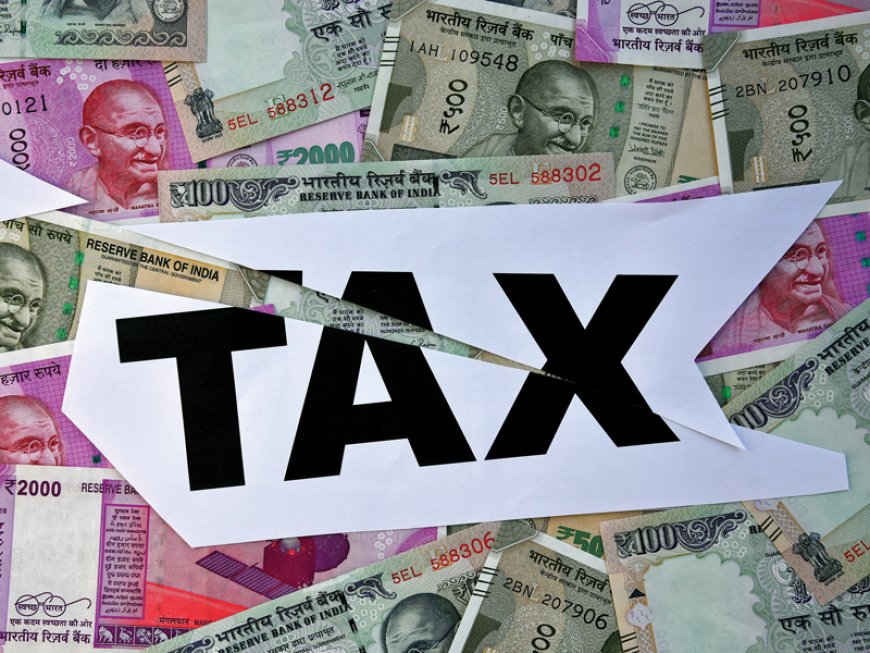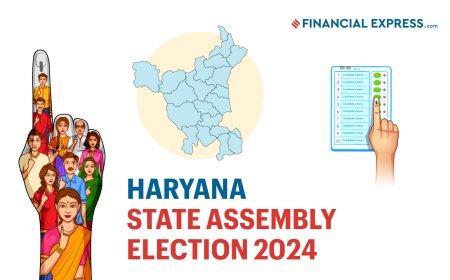Death by 100 Taxes: A Libertarian Rant About India’s Hidden Fees
India's tax system is riddled with hidden fees. From GST on basic items to constant tolls and property taxes, it’s time to simplify. Here’s why a libertarian tax system makes sense.

India’s tax system is a masterpiece of complexity and confusion. It's like an intricate web that entangles every facet of daily life. From the groceries you buy to the roads you drive on, you’ll find taxes embedded everywhere. But what if there was a simpler, fairer system? A system that aligns with libertarian values, giving citizens more freedom and control over their finances?
Let’s dive into the 100 Taxes that make you wonder whether the government is taking a cut from your existence.
1. GST: The “Everything Tax”
The Goods and Services Tax (GST) was supposed to be the magic bullet to streamline India’s convoluted tax system. Yet, it feels like a never-ending list of things you didn’t think could be taxed. Got a pencil? GST. Bought a cup of chai? GST. Needed a new pair of socks? Yes, that’s right—GST. It’s a tax on almost everything that makes you wonder if you’re funding the national budget or a government’s overzealous shopping spree.
2. Toll Booths: Pay to Drive, Pay to Wait
When you step out of your home, you are immediately greeted with toll booths. Roads are privatized, and while they should be maintained with the toll money, many are in dire need of repair. Potholes appear faster than new tolls, and yet, the fee keeps going up. It’s a never-ending cycle where citizens pay more for infrastructure that often fails to deliver. The promise of well-maintained roads seems more like a distant dream than a reality.
3. Property Tax: The Price of Living

Owning property in India isn’t just about the down payment. After you’ve secured your dream home, you’ll need to pay property taxes. Of course, the government justifies this tax as a way to fund local infrastructure and services. Yet, property owners are often left questioning whether their tax money is funding the potholes outside or the ever-increasing water scarcity in their areas.
4. Income Tax: A Slice of Your Hard Work
Income tax is probably the one you can’t escape. It gets deducted straight from your paycheck, and no matter how hard you work or how much you earn, you’ll always have a portion of your income going to the government. And if that’s not enough, the "cesses" on income tax ensure that the government can take more from your salary without actually doing much to improve public services. It’s the ultimate irony.
5. Electricity and Fuel: The Never-Ending Fees

Paying for electricity and fuel isn’t just about the units or litres consumed. You’ll also find hidden taxes and levies that increase the cost for everyone. With the price of fuel soaring and electricity rates rising, it's a never-ending cycle where your hard-earned money is siphoned away with minimal returns on public infrastructure or services. You pay more and yet see little improvement in your daily life.
The Libertarian Perspective: Why Simplifying the Tax System Makes Sense
At its core, libertarianism champions the idea of minimal government interference. A simple tax system that doesn't reach into every corner of your life reflects this philosophy. If the government taxed only what was necessary, and citizens were allowed to keep a larger share of their income, it would lead to greater personal freedom and responsibility.
Instead of a complex web of taxes that stifle economic growth, a simplified tax structure would allow for:
- Increased economic freedom: People could use their income as they see fit, whether by investing in their businesses, saving, or contributing to charity.
- Encouragement for entrepreneurship: A simplified and lower tax rate would incentivize businesses to grow, creating jobs and driving innovation.
- Government accountability: With fewer taxes and clearer allocations, citizens could hold the government accountable for how their taxes are spent, ensuring that funds go toward necessary infrastructure rather than bloated bureaucracies.
What Could a Libertarian Tax System Look Like?
A simplified, libertarian-inspired tax system would focus on two key principles:
- Flat Tax: Instead of a complex system of varying tax brackets, a flat tax ensures that everyone contributes equally according to their income.
- Minimal Government Overhead: A libertarian tax system emphasizes efficiency, where the taxes collected are used directly for essential services rather than wasteful programs.
In a world where governments seem to tax everything in sight, simplifying the tax system would not only reduce the burden on citizens but also align with the values of liberty, personal responsibility, and limited government intervention.
Conclusion: Death by 100 Taxes Is Preventable
The taxation system in India may seem like a labyrinth designed to leave you bewildered, but the solution is simpler than it appears. By reducing unnecessary taxes and implementing a fair, transparent system, we could move closer to a society where freedom and individual rights are prioritized.
After all, the goal isn’t to pay taxes on every penny you earn, but to live a life where the government doesn’t have a finger in every pie you make.
What's Your Reaction?




















































